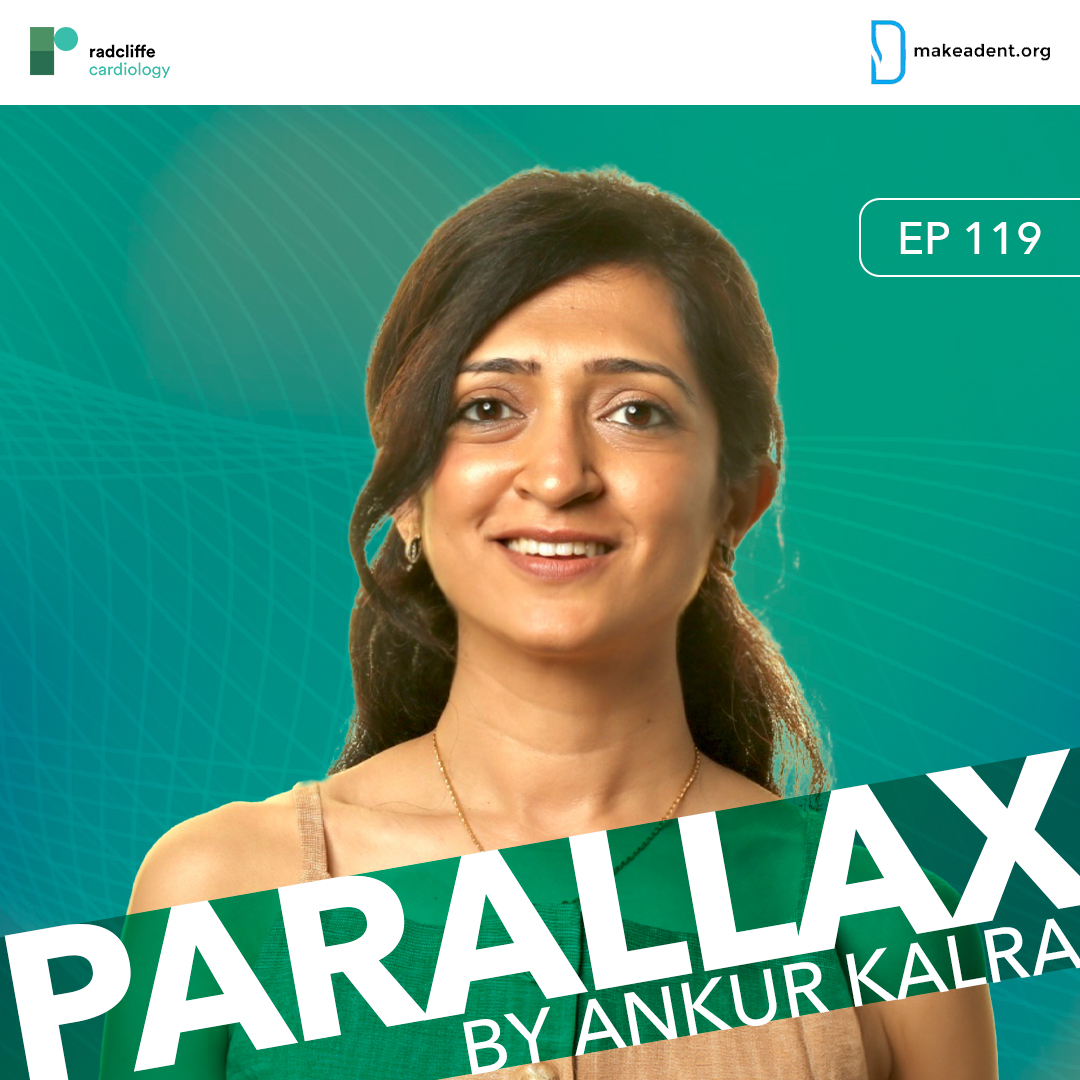
In this episode of Parallax, Dr Ankur Kalra reunites with Dr Purvi Parwani for a deep dive into the groundbreaking data unveiled at ESC Congress 2024.
Dr Parwani, Director of the Women's Cardiovascular Disease Clinic and a leading expert in her field, serves as Associate Professor of Medicine and Director of the Echocardiography Laboratory for Advanced Cardiovascular Imaging at Loma Linda University Health.
Dr Parwani offers a comprehensive analysis of the most impactful trials presented at the congress. She delves beyond the headlines, exploring the practical implications these findings hold for the future of patient care. Dr Kalra and Dr Parwani engage in a stimulating discussion, comparing the new data to prior research and exploring how these insights can be translated into real-world improvements for our patients.
Key Trials included:
- MATTERHORN: Transcatheter versus surgical mitral valve repair in patients with heart failure and secondary mitral regurgitation (NCT02371512)
- RESHAPE-HF2: Percutaneous repair of moderate-to-severe or severe functional mitral regurgitation in patients with symptomatic heart failure (NCT02444338)
- TRI FR: Multicentric randomised evaluation of the transcatheter edge-to-edge repair in the treatment of severe isolated secondary tricuspid regurgitation (NCT04646811)
- RHEIA: Transcatheter versus surgical aortic valve replacement in women with severe aortic stenosis (NCT04160130)
- SENIOR RITA: Older patients with non-ST segment elevation myocardial infarction randomised interventional treatment trial (NCT03052036)

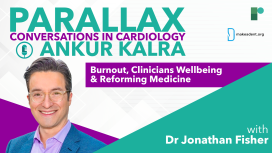

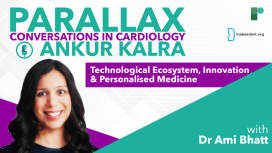
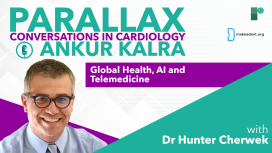
They talk about AI assisted consultation, learning pathways incorporating simulators for early career practitioners and the Flying Eye Hospital. Dr Cherwek shares his experiences about working with local teams globally and the work that goes into setting up trials across the world.
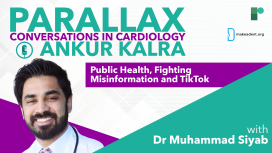
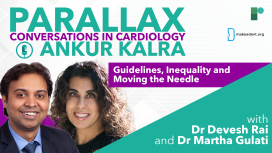
Dr Ankur Kalra’s guests this week are Dr Martha Gulati, internationally recognized cardiologist specializing in Women and Heart Disease, Heart Disease Prevention and Dr Devesh Rai, first year cardiology fellow at Rochester General Hospital.
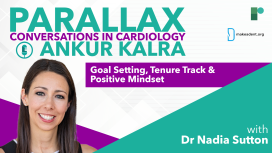
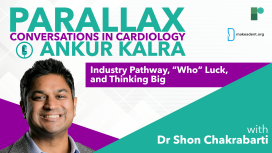
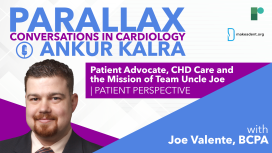
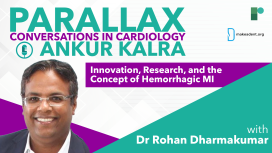

After the #MedBikini campaign provoked by a misogynistic study that scrutinized female doctors’ social media posts, this episode is about creating a safer environment for female healthcare professionals.

The charity organisation, Women as One is an agent for women and men to be part of medicine that is built on talent, rather than a privilege. Roxana and Ankur discuss the role of mentorship and family-friendly work environment in mending the broken house of cardiology. Roxana talks about the practical tools that are available for women to take the next steps in their career and achieve their goals.

Dr Kalra asks Dr Mauri about early influences and her traineeship with legendary interventionalists, the late Donald Baim and Richard Kuntz. Dr Mauri talks openly about her decision-making process and the importance of selecting your priorities and committing to them. Ankur asks Laura about her decision to go into industry. Laura shares her thoughts on medical innovations and meeting urgent needs with unique perspectives.
What is Dr Mauri’s advice for a young cardiologist? How did she balance research and patient care? What are the questions that helped her decision making? How does Dr Mauri think about innovations in medicine?

Brigham and Women’s Hospital’s Health Equity Committee decided to confront the status quo by asking: How is racism on a structural level present within our walls?
Ankur Kalra’s guests Michelle Morse (Founding Co-Director of EqualHealth and Assistant Professor at Harvard Medical School) and Lauren Eberly (Cardiology Fellow at the University of Pennsylvania) are co-authors of a retrospective study that demonstrated what had previously only been observed: That black or brown heart failure patients ended up in general medicine rather than specialised cardiology services. Following the publication of the study in November 2019, the Health Equity Committee started to roll out anti-racism trainings and to work on objective admission guidelines to mitigate biased behaviours.
Aarti Bhatt (Assistant Professor of Medicine at the University of Minnesota), member of the Minnesota chapter of Campaign Against Racism, talks about their initiative to support projects that have a positive impact on local communities on a global scale.

In this week’s Parallax, Dr Kanaa’N, the director of the program, and Dr Lahorra, chairman of the Heart, Vascular & Thoracic Department of Akron General introduce the listeners to the foundations of their program and the paradigm shift brought by TAVR.







